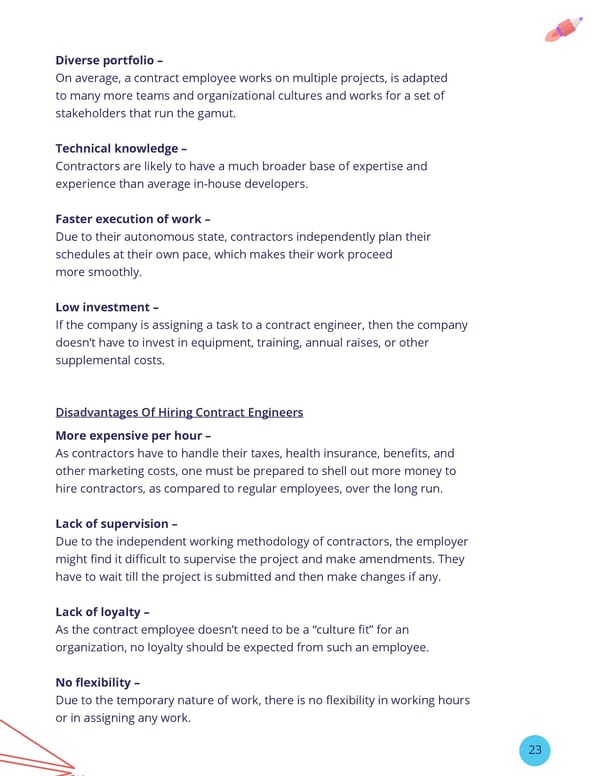Diverse portfolio – On average, a contract employee works on multiple projects, is adapted to many more teams and organizational cultures and works for a set of stakeholders that run the gamut. Technical knowledge – Contractors are likely to have a much broader base of expertise and experience than average in-house developers. Faster execution of work – Due to their autonomous state, contractors independently plan their schedules at their own pace, which makes their work proceed more smoothly. Low investment – If the company is assigning a task to a contract engineer, then the company doesn’t have to invest in equipment, training, annual raises, or other supplemental costs. Disadvantages Of Hiring Contract Engineers More expensive per hour – As contractors have to handle their taxes, health insurance, benefits, and other marketing costs, one must be prepared to shell out more money to hire contractors, as compared to regular employees, over the long run. Lack of supervision – Due to the independent working methodology of contractors, the employer might find it difficult to supervise the project and make amendments. They have to wait till the project is submitted and then make changes if any. Lack of loyalty – As the contract employee doesn’t need to be a “culture fit” for an organization, no loyalty should be expected from such an employee. No flexibility – Due to the temporary nature of work, there is no flexibility in working hours or in assigning any work. 23
 The Non-Technical Founder's Guide to Building an App | CrowdBotics Page 22 Page 24
The Non-Technical Founder's Guide to Building an App | CrowdBotics Page 22 Page 24